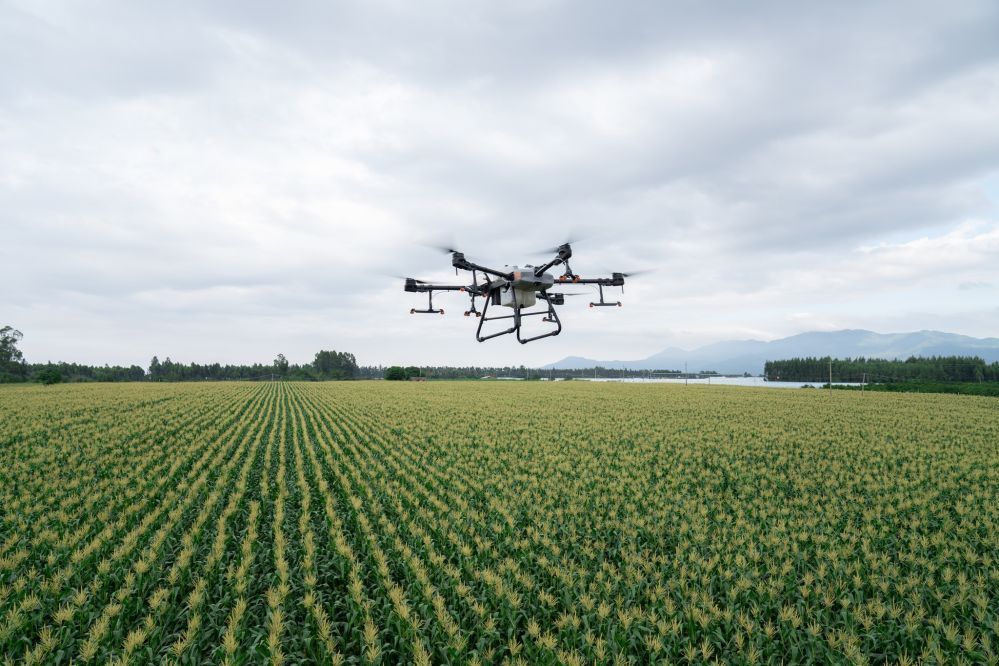The United States Department of Commerce is considering new rules that could restrict the US activities of drones made by “foreign adversaries,” sparking fresh concern in the US ag spray drone market, which is dominated by Chinese drone maker DJI.
In the advance notice of proposed rulemaking (ANPRM) the Commerce Dept seeks public comment to inform the potential development of a rule to “secure and safeguard the information and communication technology and services (ICTS) supply chain” for unmanned aircraft systems or drones from foreign adversaries.
This warns that “foreign adversary involvement in UAS ICTS supply chains – including acute threats from the People’s Republic of China and Russia – may offer our adversaries the ability to remotely access and manipulate these devices, exposing sensitive US data,” a claim DJI has repeatedly challenged.
Public comment — required by March 4 — is sought on matters including:
- Definitions of UAS (unmanned aircraft systems) components
- Assessments of how potential classes of ICTS transactions integral to drones may threaten US national security
- Evaluations of risk posed by foreign adversaries
- The economic impact any regulation could have on certain entities
- Potential mitigation measures
The ANPRM comes a week after President Biden signed a defense spending bill that will require an unspecified US agency to determine, within one year, if drones from DJI and fellow Chinese firm Autel Robotics pose unacceptable national security risks.
If such a study is not completed within the year, the firms would effectively be blocked from launching new products in the US, a major blow given the frequency with which they typically bring out new models.
DJI has ‘long called for objective standards by which all industry participates can be judged’
A DJI spokesperson told AgFunderNews that the ANPRM “recognizes the benefits of using drones and, if it is determined there is undue risk, looking for mitigations to those risks. DJI has worked with past US government efforts to examine and confirm the security of our products. We embrace transparency and have put our detailed information on data security and privacy setting on our Trust Center website.”
The spokesperson added: “DJI also has a strong record of testing its own products and has a Bug Bounty program in place to encourage third parties to uncover vulnerabilities and to help us fix them. We have been scrutinized in the past by the US government and by private sector security firms and have not been deemed a risk. DJI has long called for objective standards by which all industry participates can be judged and would welcome a move in this direction.”
American Spray Drone Coalition: ‘For any rulemaking… we want to ensure it is based in fact’
A spokesperson for the new American Spray Drone Coalition, which represents leading distributors in the agricultural spray drone market, told us that the ANPRM is “not a surprise, as we’ve seen similar rulemaking affect the auto industry recently.
“Now that the text has been made public ASDC will take its time to read through it in detail and prepare comments in response. As always, we will advocate for policies that allow for farmers and service providers to retain access to the best technology while making sure the drones are safe and secure. We plan to provide technical information and economic data to convey the ways in which spray drones are used to protect our crops and provide jobs in rural communities.
“For any rulemaking… we want to ensure it is based in fact, allows adequate time for the market to adjust to supply chain restrictions, and provides incentives to help manufacturers change suppliers while keeping prices competitive for end users.”
US farmers have been steadily increasing their use of spray drones in recent years, with 3.7 million acres sprayed by drone in 2023 across 41 states and 50 crops, mostly by Chinese-made drones, claim members of the American Spray Drone Coalition (ASDC).
ASDC members that have spoken to AgFunderNews in recent weeks say fears that ag spray drones could be commandeered mid-flight for nefarious purposes or send vital information back to China are overblown. However, the coalition is keen to address lawmakers’ security concerns and create cybersecurity standards or appropriate regulations to “protect vital data across all drones, regardless of country of origin,” according to Jeremy Schneiderman, CEO at distributor Drone Nerds.
As for why more farmers are not ‘buying American,’ he says: “We’re an American company and we support American [drone] manufacturers. But our job is to provide our customers with the best solution to get their spraying done. Today those solutions happen to be non-American solutions, and we would be doing a disservice to our customers by bringing them products with fewer features, that are less reliable, and are three times the price.”
Further reading:




